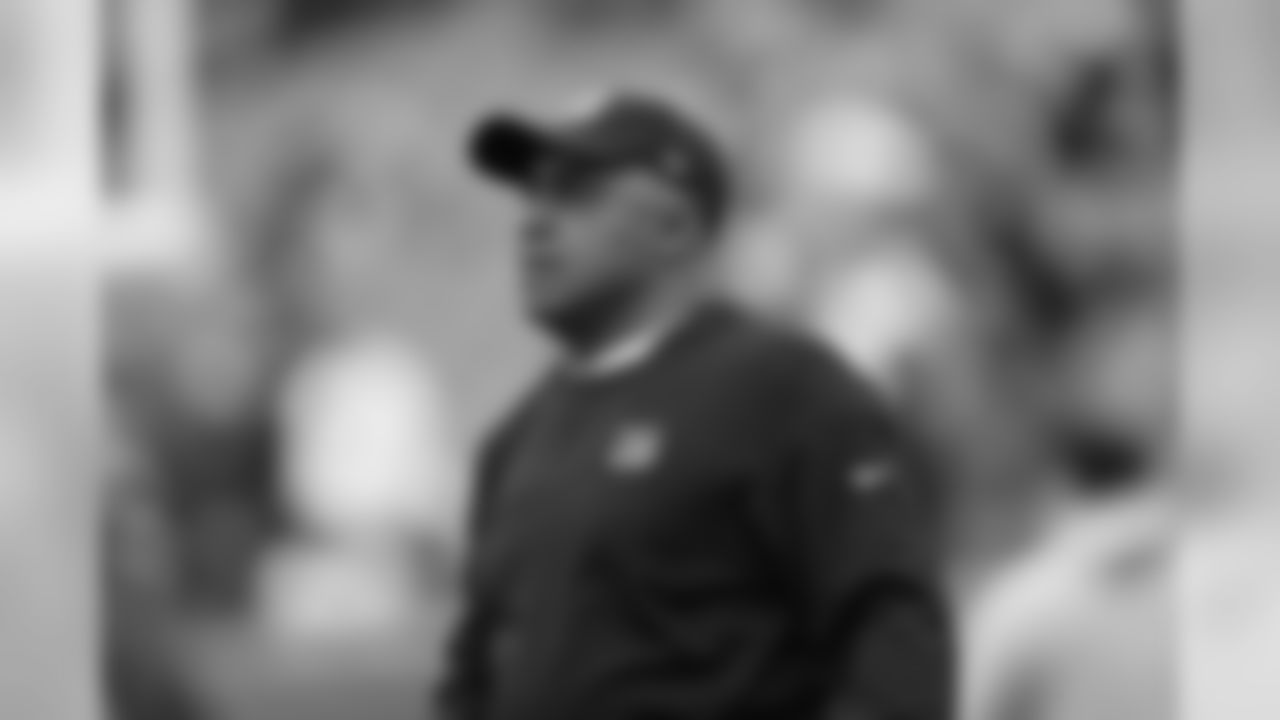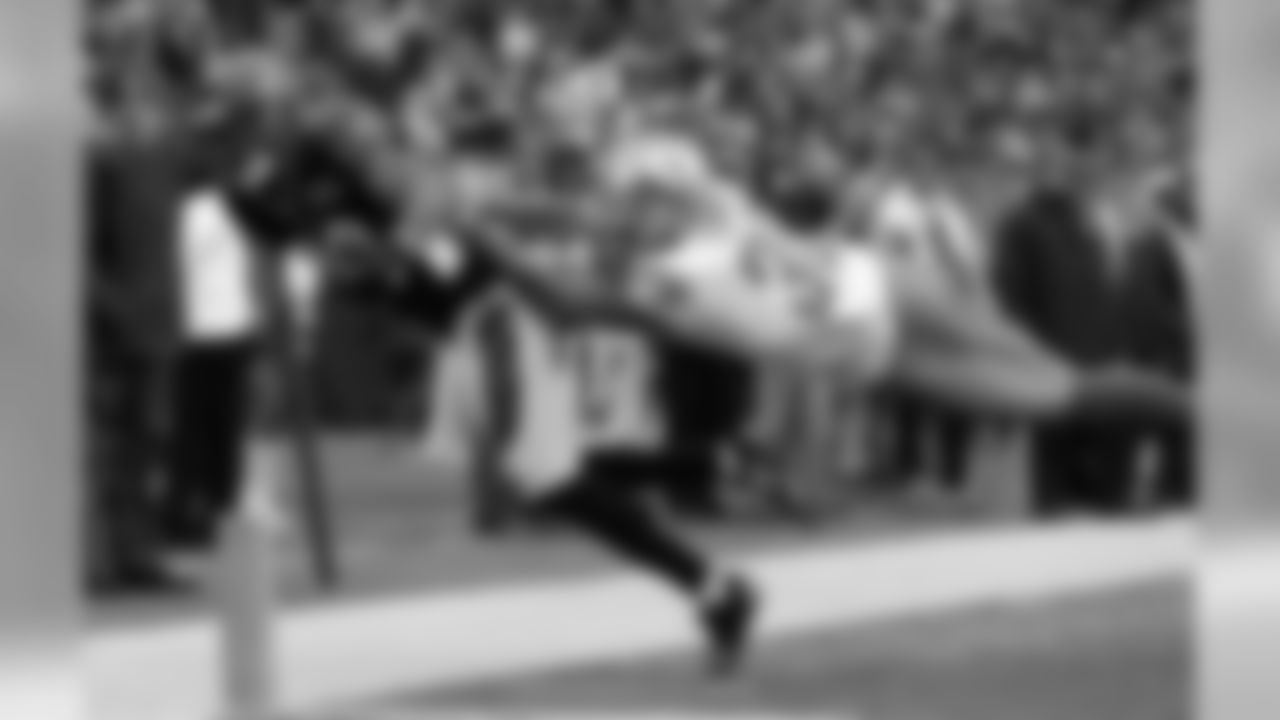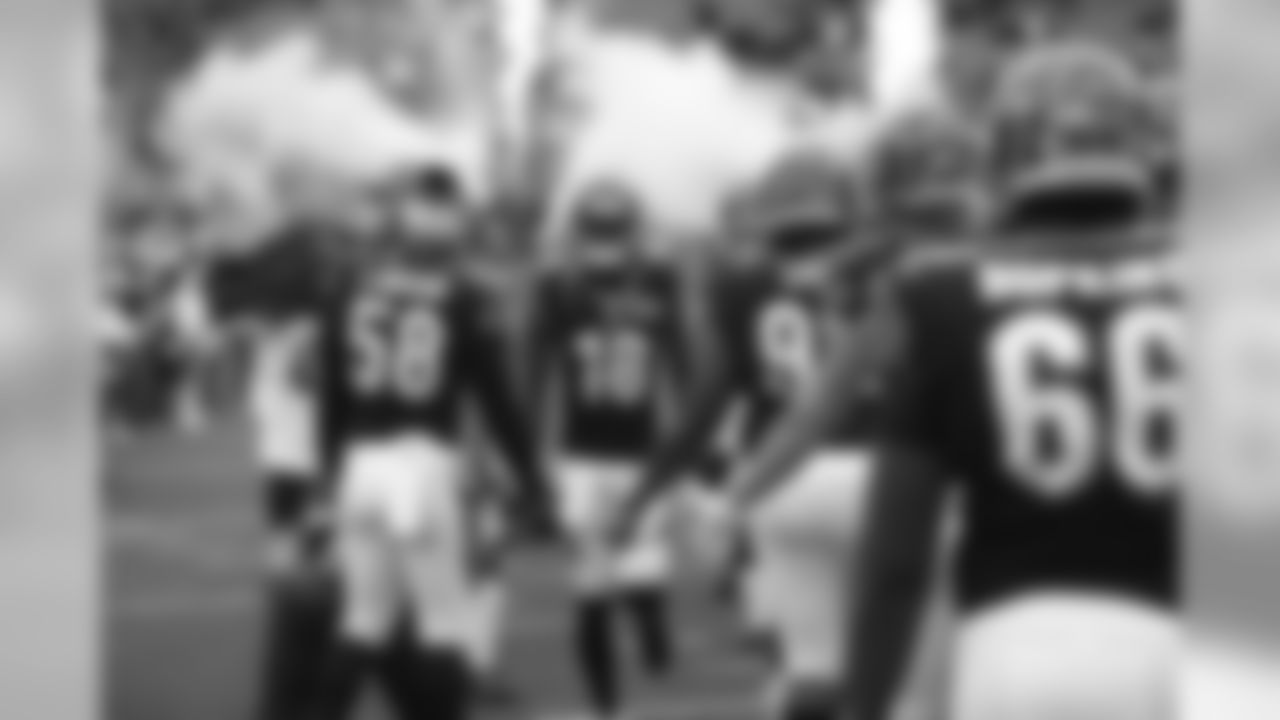No matter what happens Sunday, Marvin Lewis' tenure in Cincinnati has aided the NFL's bid for diversity.
The script is Hollywood but the ending is in Baltimore if it is Marvin Lewis' last game as head coach of the Bengals on Sunday (4:25 p.m.-Cincinnati's Channel 12) when they try to knock the Ravens out of the playoffs.
After all, it is in Baltimore where Lewis burst on the scene at the turn of the century as one of the NFL's bright young defensive minds and when he led the Ravens to the NFL's greatest season of defense in 2000 he became one of the league's hottest head coaching candidates.
John Wooten, Lewis' old confidant in those days in Baltimore, called the Ravens the other day to check in for the holidays and that's the vibe he got. They are aware that Lewis is bringing his Bengals in for what could be one final division dustup.
But for Wooten it's about a whole lot more than the playoffs. A former personnel executive for the Ravens, Wooten is chairman of the Fritz Pollard Alliance and Lewis has become one of the most powerful figures he ever could have imagined in their efforts to diversify the upper echelons of the NFL that began about the time the Bengals hired Lewis. No African-American has coached or managed the same team in one of the Big Four professional sports longer than the 15 years Lewis has steered the Bengals.
He may not have been the NFL's first African-American head coach in the modern era (Art Shell did that in 1989 when Lewis was 30 and still working in college), but Lewis broke plenty of barriers when he became the first African-American to coach 200 games with the same team. Now that he's coached more NFL games than any black coach with 246, just ahead of Tony Dungy (227), Dennis Green (219) and Mike Tomlin (189), he's become a person to note for aspiring minority coaches born in 1989 and beyond.
"For us,' says Wooten this week, "he's been a remarkable person. He exemplifies everything what you want players and people in the NFL to be like. The Marvin Lewis Community has done such an outstanding job for helping get young people get to college … He's been a great example for young people because he's given back to them."
Baltimore. Wooten chuckles softly. After a long career in Dallas in personnel he landed with the Ravens as assistant director of pro and college scouting 20 years ago and became part of an informal gathering they used to call, "The Barber Shop." Football lifers like Lewis and Wooten and soon to be NFL Executive of the Year in Ozzie Newsome (one of the rare men who could go into the Hall as a player and as a contributor) would talk the game and everything else. You think people with the Bengals want him to play young guys? Wooten, a good personnel man, was gently trying to show him the benefits of the kids long ago.
"We ended up winning Super Bowl 34," Wooten says of that 2000 run. "We had a lot of good people then and a lot of them are still there with Ozzie. And Art Modell was the owner. And it kind of where it all began for Marvin."
It was a good enough run that when the Bengals hired Lewis they wanted him to bring what he had in Baltimore so they could beat the Ravens and Pittsburgh and make headway after the first year of the AFC North in 2002 saw them go winless in the division.
Here's more for Sunday's script. Baltimore has been the scene of some of Lewis' biggest road wins with the Bengals (the Ray Lewis personal foul on Chad Johnson in the last minute in 2009, A.J. Green hijacking the 2014 opener in the last four minutes on a 77-yard stunner, and then the next year beating them with two fourth-quarter TDs) starting with the 24-point fourth quarter in 2004.
Both Lewis and Pro Bowl right tackle Willie Anderson called it more significant than the win over the 9-0 Chiefs the year before. After the Bengals' first win on the road against a winning team in 14 years, Anderson realized they had beaten the blueprint.
"This has to be the biggest," Anderson said that day. "It has to be the biggest because of how we did it and in a place where we've never won against a team in our division that we're kind of modeling ourselves on."
Wooten saw Lewis' attention-to-detail and his remarkable ability connect with players, a can't-miss-head-coach in his mind.
But when young black coaches like Lewis were trying to aspire to head coaching jobs, there weren't a lot of guys that looked like them. In Lewis' first NFL season of 1992 there were two and they were the first two and Green was in his first year. There never seemed to be many more than that. When the Bengals hired Lewis in 2003, he became the league's current third African-American coach, joining Tony Dungy of Indianapolis and Herman Edwards of the Jets.
But now as he heads into what may be his last game, there are three blacks coaches in the AFC North alone. Wooten thinks Lewis is a big reason why.
"The thing about Marvin is that he always gives back whenever we need him," Wooten says. "Whether it's at the Senior Bowl or the Combine, he's always willing to stay and talk to young guys about preparation. The way to carry yourself as an individual. He's just a top, exemplarity father and husband, coach type person."
There's no question, Wooten says. What Lewis has done in Cincinnati has been a big factor in the effort by the NFL and the Pollard Alliance to find talent from all kinds of backgrounds. In 2003 he became the NFL's eighth African-American head coach. He comes into what may be his last game as one of seven currently working.
And it's notable for Wooten that Lewis has developed coaches in Cincinnati. It not only includes Coach of the Year candidate Mike Zimmer, but also two of the current African-American head coaches, Hue Jackson in Cleveland and Vance Joseph in Denver.
"Look at his coaching tree," Wooten says, who also points to NFL commissioner Roger Goodell's role in diversification. "Under Roger the league has come a long way in getting things done at every level. You just look at things like the on-field officiating crews and front offices."
Lewis and Wooten share one of the rare distinctions in the league. They have both worked for the families of Paul Brown and Art Modell, the two men that made the Bengals possible when Modell fired the iconic Brown despite 17 years as the face of his namesake team in Cleveland.
Lewis not only became the first Bengals head coach who first came into the organization not approved by Paul Brown, he was also the club's first head coach hired with heavy input from the husband-wife team of Katie and Troy Blackburn that runs the team day-to-day for Bengals president Mike Brown, Katie's father. The kids pushed the Lewis hire with the same energy as the Ravens' charismatic defensive coordinator.
"Hats off to the Browns, including Katie and Troy for what he's done there and what they've allowed him to do," Wooten says. "I think the people of Cincinnati will pay tribute and honor him as to what he has been in a remarkable career on and off the field."
Wooten hears the same thing everyone else does. He's not sure what happens Sunday. But he does know what the impact of 15 years has on the things he cares about.
"I think we can all stand and be very happy," Wooten says, "and be proud of Marvin Lewis in the NFL, in the city of Cincinnati, and to us in the Fritz Pollard Alliance."
Cincinnati Bengals host the Detroit Lions in week 16 of the regular season.
















































































